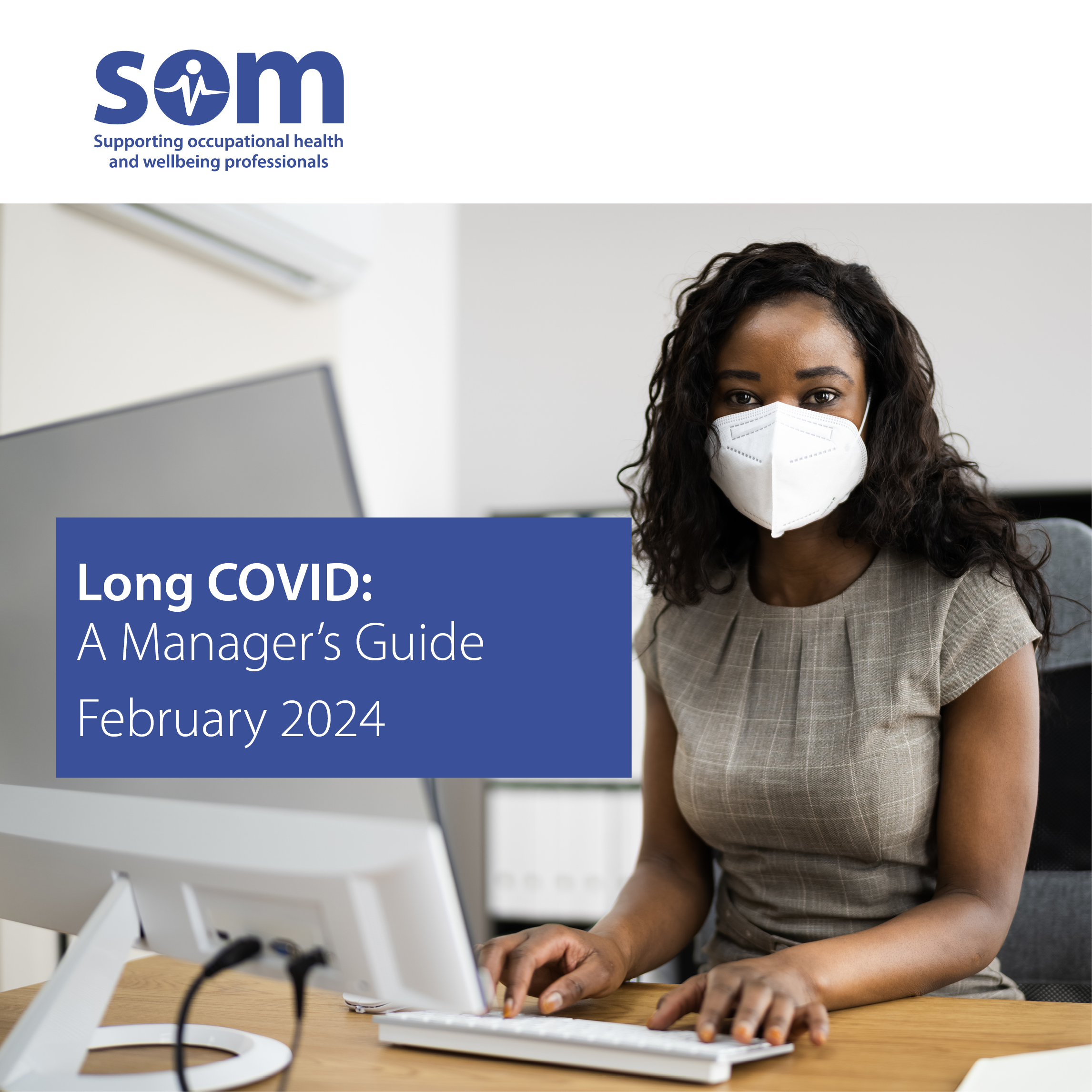
The Office of National Statistics report a large increase in economically inactive households and worklessness since 2019. A significant proportion of this is due to Post-COVID Syndrome (Long COVID).
As a follow-up to the highly cited 2020 COVID-19 themed issue, the Occupational Medicine Journal is focussing on Post-COVID Syndrome and lessons learned from the COVID-19 pandemic, covering original peer reviewed research, editorials and fillers. This special issue is available here.
SOM has also produced a new guide for managers covering supporting people with Long COVID. The guide states that:
1. Managers can have a significant impact on successful return to work.
2. COVID-19 causes a wide range of health problems. Symptoms vary over time and can be unpredictable and fluctuate.
3. Removing or reducing obstacles to return to work helps staff retention and helps avoid discrimination claims under the Equality Act 2010. Reasonable adjustments will also help workers with Long COVID perform their job well.
4. Following these steps produce the best chance of getting employees back to work safely and staying at work:
Step 1: Early - stay in touch while the worker is absent from work
Step 2: Regular meetings
Step 3: Plan the worker’s return
Step 4: Provide support during the early days of the return to work
Step 5: Regular review and ongoing support.
5. The most effective workplace adjustments for achieving a safe and sustained return to work after COVID-19 are:
• preventing re-infections at work
• a prolonged phased return (returning to work tasks and hours gradually)
• a Return-to-Work (RTW) Plan detailing the job adjustments, which consider day-to-day variations in symptoms
• not working beyond energy capacity as this can cause deterioration.
6. Most people with Long COVID need an extended period of RTW.
7. Advice should be taken from a human resources professional. Referral to occupational health services is often helpful.
An infographic and myth buster also help highlight these issues.
Dr Clare Rayner, our 2023 award winner for Global Contribution to the Development of Occupational Health, for work on Post-COVID conditions says, “I am delighted that SOM has produced this timely package of advice and guidance on what can help people with Post-COVID conditions get safely back to work and stay at work. In my mind, the key factors are early healthcare and workplace interventions, an individualised Return-to-Work Plan, and prevention of reinfection.”

